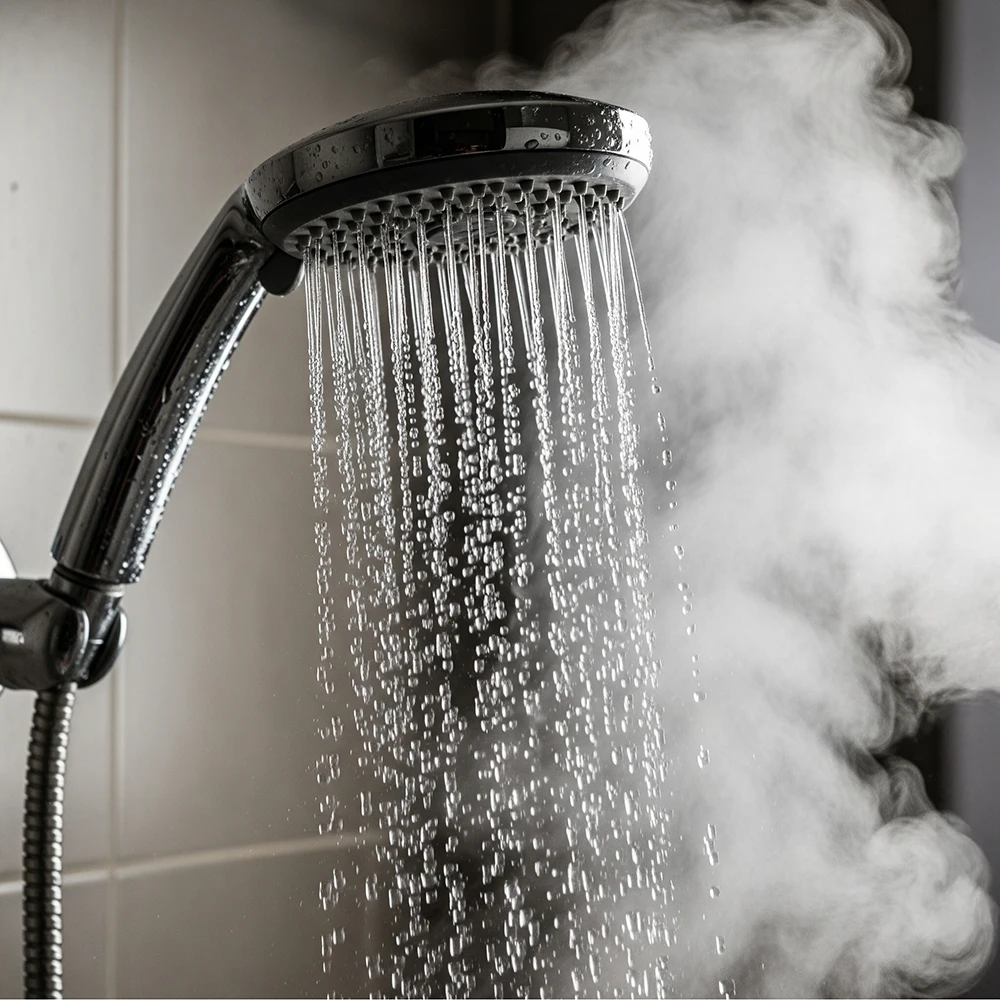
Few plumbing issues are as frustrating as running out of hot water mid-shower or discovering that your water never seems to get truly hot. If your water heater is not producing enough hot water or runs out far too quickly, there are several common causes. Some are simple efficiency issues, while others signal that your water heater may need professional service or replacement.
Understanding what may be happening inside your water heater can help you decide whether a minor adjustment, routine maintenance, or a system upgrade is the right solution.
Hot Water Loses Heat Before It Reaches the Faucet
If hot water is more reliable at fixtures located closer to the water heater but noticeably cooler at distant bathrooms or kitchens, heat loss in the plumbing system may be the issue. Long pipe runs allow hot water to cool as it travels through unconditioned spaces, especially during Colorado’s cold winter months.
Insulating hot water supply pipes can significantly reduce heat loss and help hot water reach faucets at a higher temperature. In some homes, adding a hot water recirculation system can also improve comfort by delivering hot water faster while reducing water waste.
Your Water Heater Tank Is Too Small for Household Demand
If hot water runs out quickly or the temperature drops when multiple fixtures are used at the same time, such as running a shower while the washing machine is operating, your water heater may simply be undersized for your household’s needs.
As families grow and usage habits change, older water heaters may no longer keep up. Installing a larger capacity tank or upgrading to a tankless water heater can provide consistent hot water on demand and improve overall efficiency.
A Failing or Broken Dip Tube
A common issue in aging tank-style water heaters is a damaged dip tube. The dip tube directs incoming cold water to the bottom of the tank so it can be heated efficiently. When the dip tube breaks or corrodes, cold water can mix near the top of the tank where hot water exits.
This mixing causes lukewarm water at the tap even when the water heater is functioning. Replacing a faulty dip tube is often a cost-effective repair that can restore proper hot water performance.
Sediment Buildup Reducing Heating Efficiency
Over time, minerals naturally present in water settle at the bottom of the tank, forming a layer of sediment. This buildup insulates the water from the burner or heating element, forcing the water heater to work harder while producing less hot water.
Sediment buildup is especially common in mountain communities with mineral-rich water. Annual water heater flushing helps maintain efficiency, extends equipment life, and ensures your system can deliver the hot water your home requires.
Failing Water Heater Components
In some cases, the issue may be caused by a malfunctioning component that prevents proper heating. Common parts that can fail include:
- Thermal switch
- Thermostat
- Heating element (for electric water heaters)
When these components fail, the water heater may stop heating altogether or only partially heat the water. Professional diagnosis is important to ensure safe and accurate repairs.
When to Call a Professional
If your water heater is producing inconsistent temperatures, running out of hot water too quickly, or showing signs of age, a professional inspection can help determine the most cost-effective solution. Addressing issues early can prevent unexpected breakdowns and extend the life of your system.
Have questions about water heaters or other plumbing systems? Call Grand Lake Plumbing and Heating. Our experienced team has been serving Grand County for generations and can help ensure your home has reliable, efficient hot water year-round.
